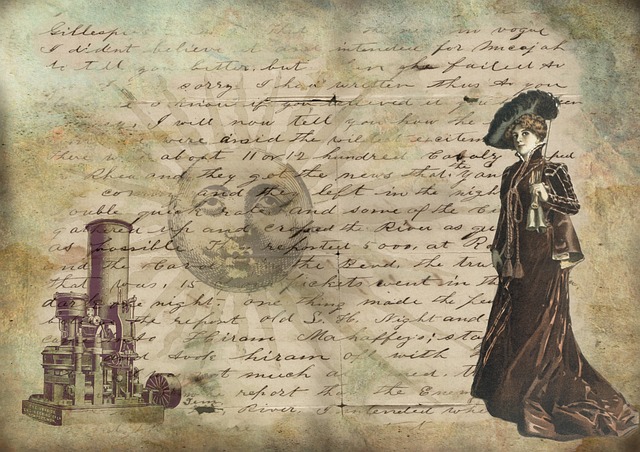Translation services play a pivotal role in facilitating successful submissions of scientific articles to UK journals by navigating distinct academic writing conventions and linguistic nuances. These services employ language experts who understand both technical fields and academic English, ensuring complex ideas are accurately conveyed while adhering to local standards. Professional translators overcome challenges like style guidelines and technical jargon equivalents, enhancing submission success rates and accessibility for diverse researchers. By utilizing reliable agencies with native speakers and quality assurance protocols, authors can ensure clear, precise translations, fostering inclusive scholarly discourse within the UK scientific community. Technological advancements and human-AI collaboration further revolutionize translation efficiency while preserving accuracy. Effective communication with translators is key to achieving journal-ready manuscripts, ultimately disseminating groundbreaking research globally.
“Ensuring your research reaches a global audience requires effective communication through translation, especially when submitting to UK scientific journals. This article explores the intricacies of translating academic papers for a British audience, highlighting common challenges and best practices. From understanding cultural nuances to choosing reliable translation providers, we provide insights into optimizing your submission process. Discover how language barriers impact peer review and explore cost-effective solutions, case studies, and future trends in scientific translation services for UK journals.”
- Understanding Cultural Nuances in UK Scientific Writing
- The Role of Translation Services for Accurate Submission
- Common Challenges in Translating Research Papers
- Ensuring Clarity and Precision in Journal Submissions
- Best Practices for Choosing a Reliable Translation Provider
- Impact of Language Barriers on Peer Review Process
- Case Studies: Successful Translations for UK Journals
- Cost-Effective Solutions for Researchers' Budget Constraints
- Future Trends in Scientific Translation Services
- Tips for Effective Communication with Translators
Understanding Cultural Nuances in UK Scientific Writing

When translating scientific articles for submission to UK journals, understanding cultural nuances is paramount. The United Kingdom has a distinct academic culture with its own set of writing conventions and expectations. For instance, British scientific writing often prefers a more formal tone compared to some other countries. It’s crucial to tailor your translation to reflect this, ensuring the content aligns seamlessly with the local standards.
Translation services specializing in UK scientific journals are invaluable in navigating these subtleties. They employ language experts who grasp the cultural context and can convey complex ideas accurately while adhering to the specific requirements of UK publications. This ensures that your research is not only correctly translated but also effectively communicated, increasing the chances of a successful submission.
The Role of Translation Services for Accurate Submission

In the realm of academic publishing, accuracy and fluency are paramount when submitting your work to UK scientific journals. This is where translation services play a crucial role for researchers from diverse linguistic backgrounds. Effective translation ensures that your research, expressed in your native language, is meticulously conveyed in English – the lingua franca of global science.
Professional translation services for UK scientific journals go beyond simple word-for-word rendering. They involve linguist experts who understand both your field of study and the nuances of academic writing in English. This specialized approach safeguards that your research intent, intricate terminology, and subtle cultural references are preserved and accurately translated, enhancing the chances of a successful submission.
Common Challenges in Translating Research Papers

Translating research papers for submission to UK scientific journals can present several challenges, especially when it comes to ensuring accuracy and maintaining the original intent. One of the primary hurdles is adapting to the stylistic and linguistic nuances specific to each journal’s target audience. Each publication has its house style guide, dictating format, terminology, and tone preferences, which researchers must adhere to. Misinterpretation or incorrect application of these guidelines can lead to rejections or significant revisions required before acceptance.
Another common challenge is capturing the complex scientific concepts accurately in the target language. Technical jargon and specialized terms often require careful translation, as their direct equivalents might not exist or carry the same meaning. Professional translation services for UK scientific journals employ linguists who specialize in scientific communication to overcome this hurdle. They ensure that technical content is not only translated but also adapted for readability while preserving the integrity of the original research findings.
Ensuring Clarity and Precision in Journal Submissions

When submitting your research to UK scientific journals, ensuring clarity and precision in your writing is paramount. The process involves careful consideration of language and style to align with the high standards set by these publications. This is where translation services for UK scientific journals play a crucial role. Professional translators who specialize in academic writing can help refine your manuscript, ensuring it meets the linguistic requirements of the target audience.
These services go beyond simple word-for-word translation. They involve meticulous editing to preserve the original meaning while enhancing clarity and grammatical correctness. This is especially important when dealing with complex scientific concepts that demand precise terminology. By leveraging translation services, authors can significantly improve the chances of their submissions being accepted and widely read in the UK academic community.
Best Practices for Choosing a Reliable Translation Provider

When submitting your research to UK scientific journals, ensuring your journal translation is accurate and reliable is paramount. This is where professional translation services come into play. To secure high-quality results, follow these best practices when choosing a provider for your translation services for UK scientific journals:
First and foremost, verify their expertise in academic or scientific translation. Reputable providers should have a team of translators with specialized knowledge in your field. Look for native English speakers who possess a deep understanding of both your source language and British English nuances. Additionally, check if they offer peer review services to guarantee accuracy and consistency. Reputable agencies will also adhere to strict quality assurance protocols, ensuring every translated document meets the highest standards.
Impact of Language Barriers on Peer Review Process

The language barrier is a significant challenge in the peer review process, especially for researchers submitting their work to UK scientific journals. When manuscripts are not in English, finding suitable reviewers who can accurately assess the quality and validity of the research becomes difficult. This is where translation services for UK scientific journals play a crucial role. Professional translation ensures that the author’s ideas and methodologies are conveyed clearly, preserving the integrity of the research while allowing for fair evaluation.
Accurate translation goes beyond mere word-for-word substitution; it involves understanding the nuances of both languages to maintain the intended meaning and academic tone. This is particularly important in scientific writing, where technical terms and specific terminology must be handled with precision. Well-planned translation services cater to this need, enabling researchers from diverse linguistic backgrounds to contribute their expertise to the UK’s scholarly discourse without facing language-related obstacles.
Case Studies: Successful Translations for UK Journals

When it comes to translating scientific articles for UK journals, case studies offer a compelling glimpse into successful strategies. Many researchers and institutions have benefited from professional translation services tailored specifically for this market. These services understand not only the language nuances but also the unique formatting and style preferences of UK academic publications.
For instance, a study on innovative medical research conducted in an international setting was seamlessly translated by a leading translation company, ensuring the scientific integrity and readability of the article. The process involved close collaboration with the authors to adapt terminology, maintain complex concepts’ clarity, and adhere to the specific formatting requirements of the target journal. This collaborative approach is key to achieving high-quality translations for UK scientific journals.
Cost-Effective Solutions for Researchers' Budget Constraints

Many researchers, especially those working on international collaborations or aiming for a global audience, face budget constraints when it comes to publishing in UK scientific journals. The cost of translation services for UK scientific journals can be a significant hurdle, but there are cost-effective solutions available. Professional translation agencies often offer competitive rates and flexible packages tailored to the specific needs of academic papers.
These services not only ensure high-quality translations that meet the rigorous standards of UK journals but also save researchers time and effort. Some agencies even provide expedited services for urgent submissions, ensuring that budget limitations don’t compromise the timely sharing of research findings. By exploring these cost-effective options, researchers can enhance their chances of successful UK journal submissions while adhering to their institutional or personal financial constraints.
Future Trends in Scientific Translation Services

The future of scientific translation services is poised for significant advancements, particularly in catering to the unique needs of UK scientific journals. With the ever-growing global research community, there is an increasing demand for precise and contextually sensitive translations. Technology plays a pivotal role in this evolution; machine learning algorithms are enhancing efficiency while maintaining accuracy, allowing translators to adapt more quickly to specialized terminology and complex subject matter.
In line with these trends, translation services for UK scientific journals will likely incorporate advanced tools for terminology management and consistency checks, ensuring that research articles maintain their integrity across languages. Additionally, the focus on human-AI collaboration will foster even more accurate translations, as machine intelligence complements human expertise, resulting in seamless communication of groundbreaking discoveries to a global audience.
Tips for Effective Communication with Translators

When using translation services for UK scientific journals, effective communication with your translators is key to ensuring a successful outcome. Firstly, provide clear and concise instructions regarding the specific terminology and style guidelines required by the target journal. This includes defining technical terms and providing samples of acceptable writing styles.
Secondly, maintain open lines of communication throughout the process. Promptly address any queries or ambiguities that arise during translation. Regular feedback sessions can help refine the draft, ensuring it aligns with your original intent. Remember, skilled translators are partners in this process; their expertise combined with your input will produce a high-quality translated manuscript suitable for UK scientific journals.
In navigating the complexities of international scientific communication, understanding the nuances of cultural translation and leveraging reliable translation services for UK scientific journals is paramount. This article has explored various facets of this process, from deciphering cultural subtleties in UK writing styles to addressing common challenges in research paper translation. By adhering to best practices when selecting a translator and effectively communicating with them, researchers can ensure their work resonates clearly within the academic community. As language barriers continue to influence peer review processes, embracing cost-effective solutions and staying abreast of emerging trends in scientific translation services will be key to overcoming these obstacles.
